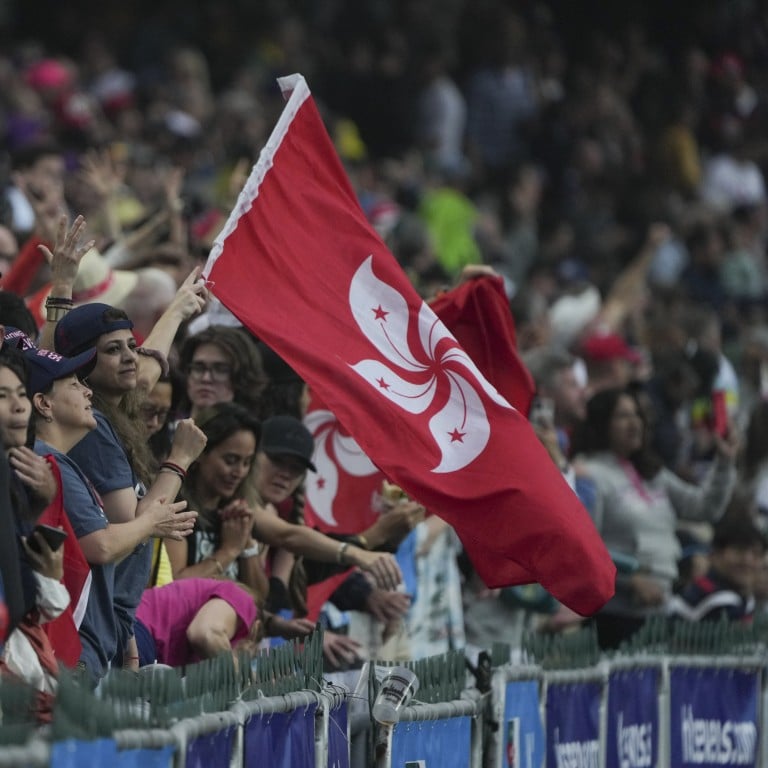
Hong Kong Sevens: 7 ideas to improve showpiece for 2024 and beyond
- From a personality void to too many matches, rugby sevens as a sport could up its appeal, as could stadium food and entertainment
- More needs to be done to entice overseas supporters back, while ring-fencing a bigger allocation for Hongkongers
As the dust settles on the 2023 Cathay/HSBC Hong Kong Sevens, a stirring weekend can be claimed as a success by the city’s rugby union.
But with the tournament regenerating itself after the pandemic, you have to ask whether there is scope for all of its stakeholders – also including governing bodies, government, sponsors and suppliers – to improve it further.
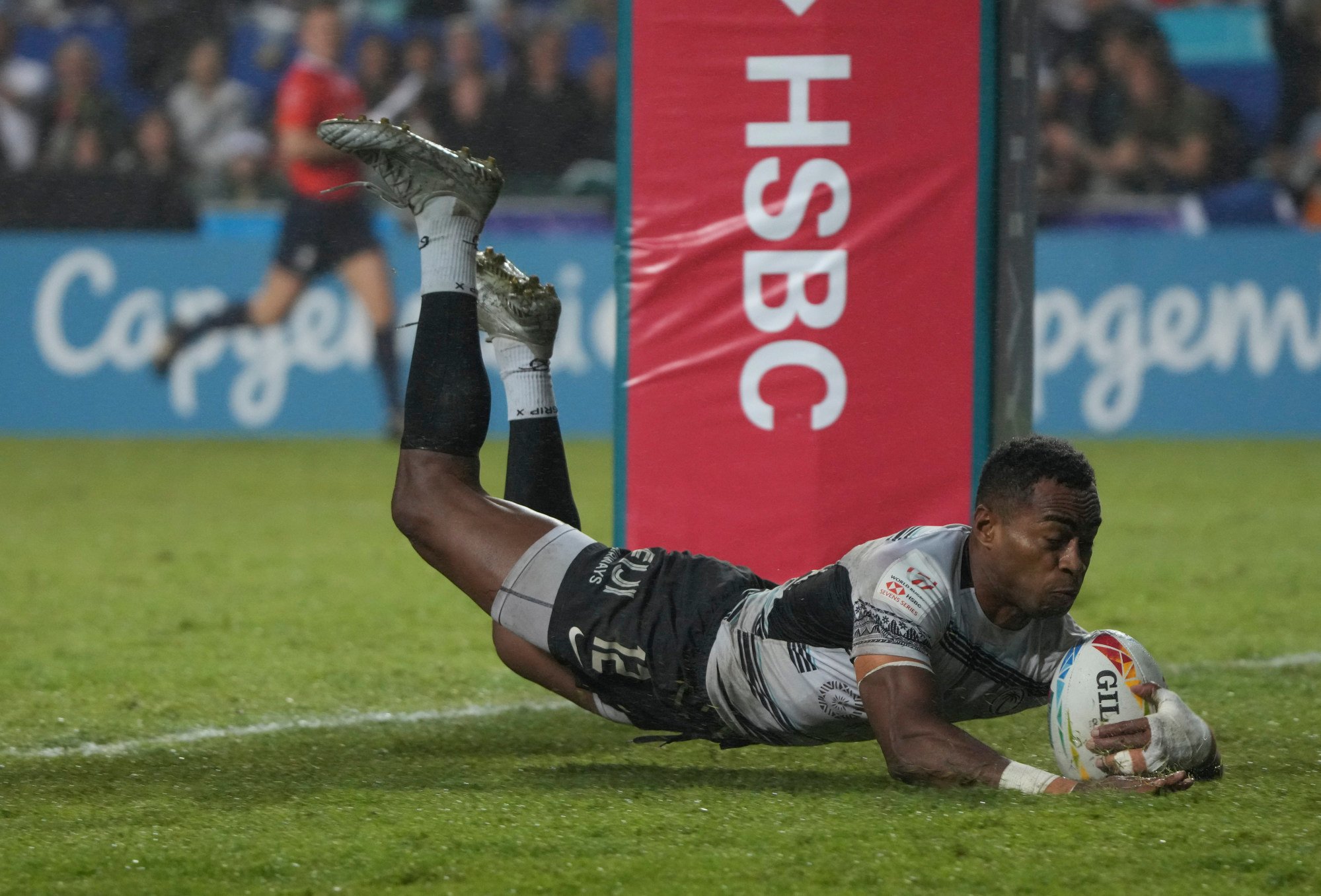
1. Too much sevens?
The days were too long, there were too many matches and – to judge from the sparsely populated stands before mid-afternoon – it started too early for most people’s taste.
How about scheduling children’s matches on Saturday lunchtime, as they used to be, so that they don’t play at 7am to an empty arena?
Officials behind the HSBC World Rugby Sevens Series could take heed from cricket and football: the more often big teams play each other, the less meaningful it becomes.
As a shortened format, sevens already runs the risk of appearing trivial.
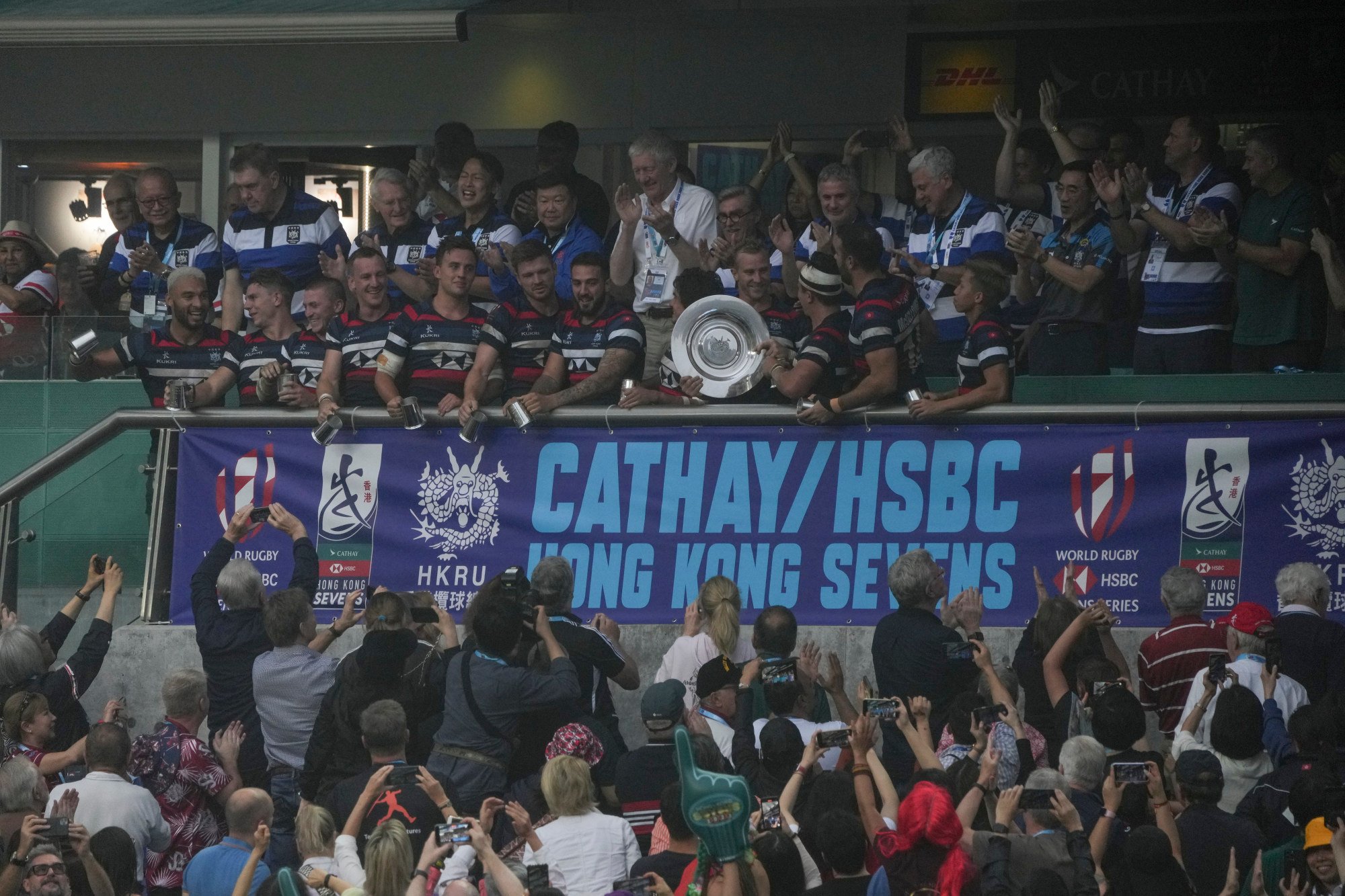
2. It’s complicated
This is down to the World Series, not Hong Kong, but any expectation that we retain interest in seventh or ninth place for a full three days is misguided. If your team won a minor final, it may have felt worth the circuitous build-up. If they finished anywhere short, it won’t have.
The repechage terminology is a turn-off (13th place semi-finals, anyone?) and the season standings can’t have excited too many, nor even the Olympic qualifying pathway.
There could be merit in refocusing on Cup, Plate and Bowl prizes. Bring back minnows and have them and the World Series elite starting together in pools of three before they are separated into tiers. And for goodness’ sake, losers in first knockout rounds should not drop into yet another comp. They should go home.
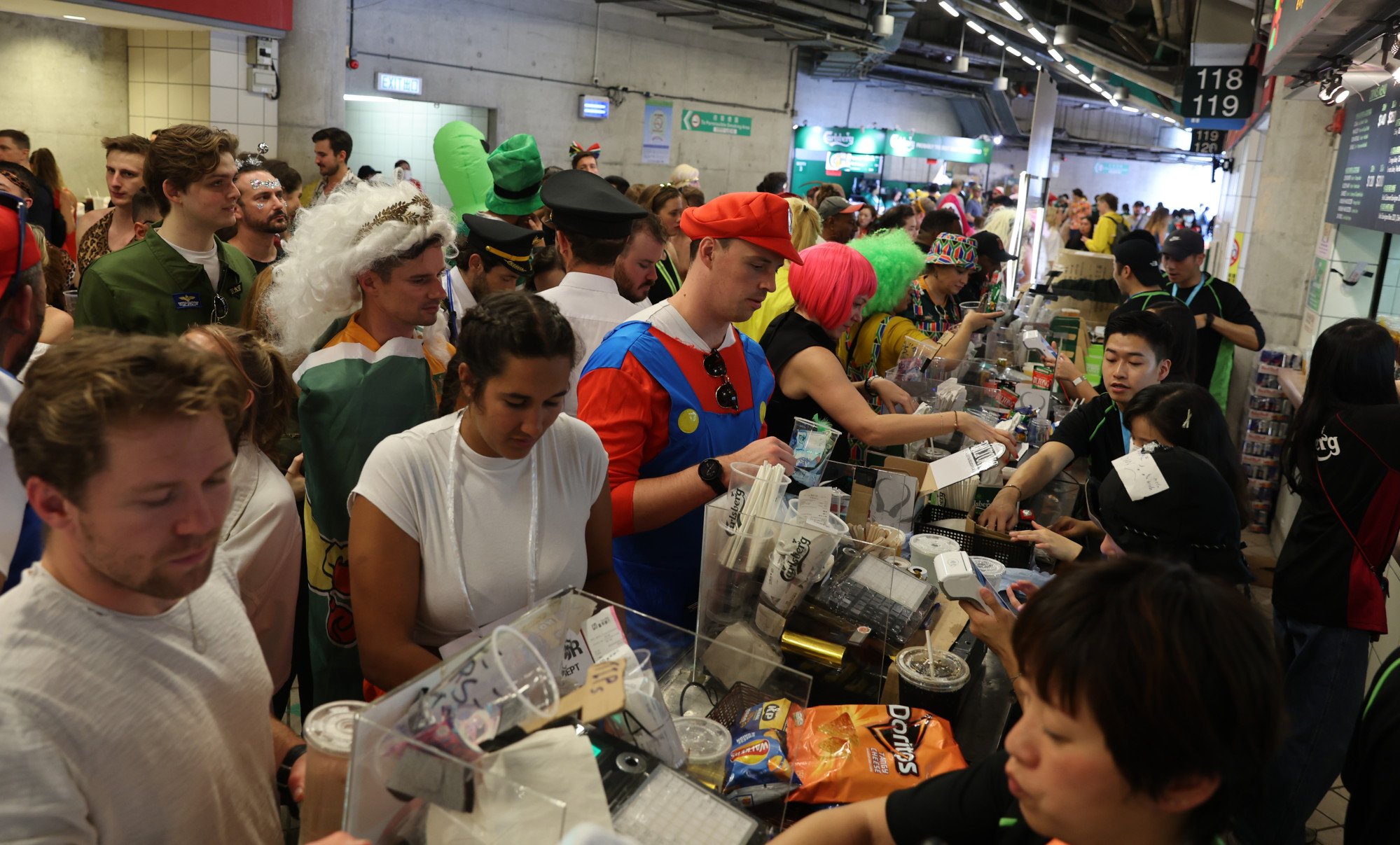
3. More food, but waste less
There was not a huge choice of options for meat-dodgers in particular. That’s normal at Hong Kong Stadium and at rugby matches generally, but the fact some of the options had “sold out” signs slapped on them suggested not enough had been procured.
Food and drink packaging waste is hardly the sole doing of the Sevens, but there is an awful lot of it each year.
One wonders whether a flagship Hong Kong event could lead the way on a major citywide problem by using less plastic.

4. Change the record
Plastic waste wasn’t just a matter for the food stands.
Whoever selected a Belgian entertainer dating from before CDs were invented needs their event management licence revoked, or at least put on hold until they can prove their music credentials.
If we can’t be current, then save cash and hire a covers band – it would please more people.
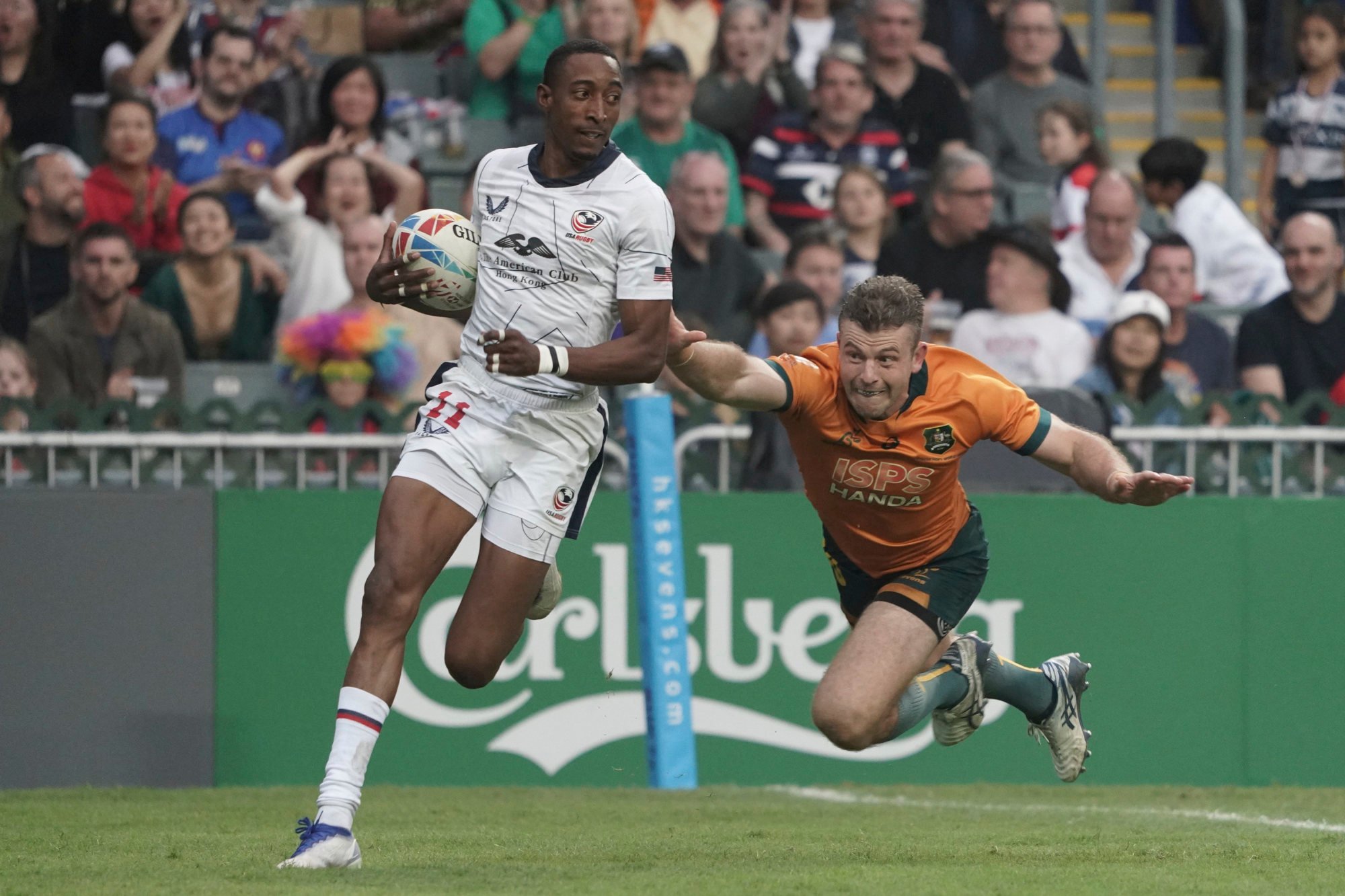
5. Personality deficit
Sevens is now an Olympic sport, with participants who are part rugby player, part world-class sprinter, part decathlete, but how many can you name? Where are the stars of the past, where are the personalities?
From a HK$100 event magazine lacking player profiles, to a stadium announcer who didn’t or couldn’t name a single try-scorer for three days – meaning games merged into an anonymous frenzy of tries – the players are largely unknown.
Of course, outside the likes of Usain Bolt, there are few Olympic sprinters the average punter can name. Promoting the game’s stars beyond random pictures on posters would be a start.
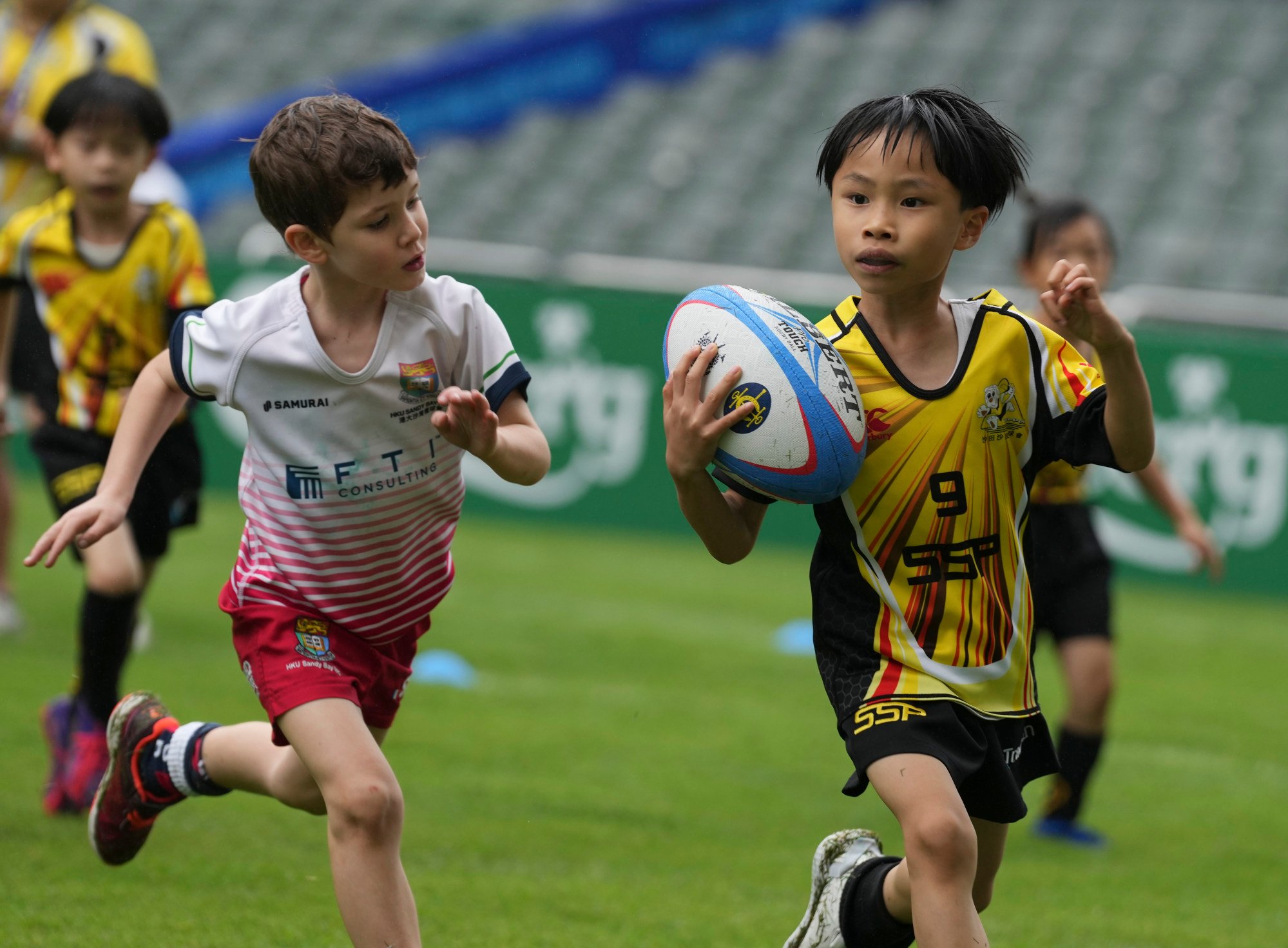
6. Let minis go free
Should those playing in the Sevens have to buy a ticket?
The mini and junior players did, if they wanted to stay to watch after their own match, at HK$950 for children aged 12 and under, or HK$1,950 for teens. For the juniors, these were finals reached through several weekends of qualifying.
Plenty were seen leaving after playing their matches, so some will have missed the Hong Kong teams’ inspiring performances. And the stadium was far from full.
The issue here is that the government takes a large cut of any tickets, to the tune of 25 per cent of face value, whether they are sold or given away. The rugby union isn’t in a position to fork out that kind of cash, so if the government is as serious as it appears to be about “sport for all”, waiving its cut could be a proposal for its in-tray.
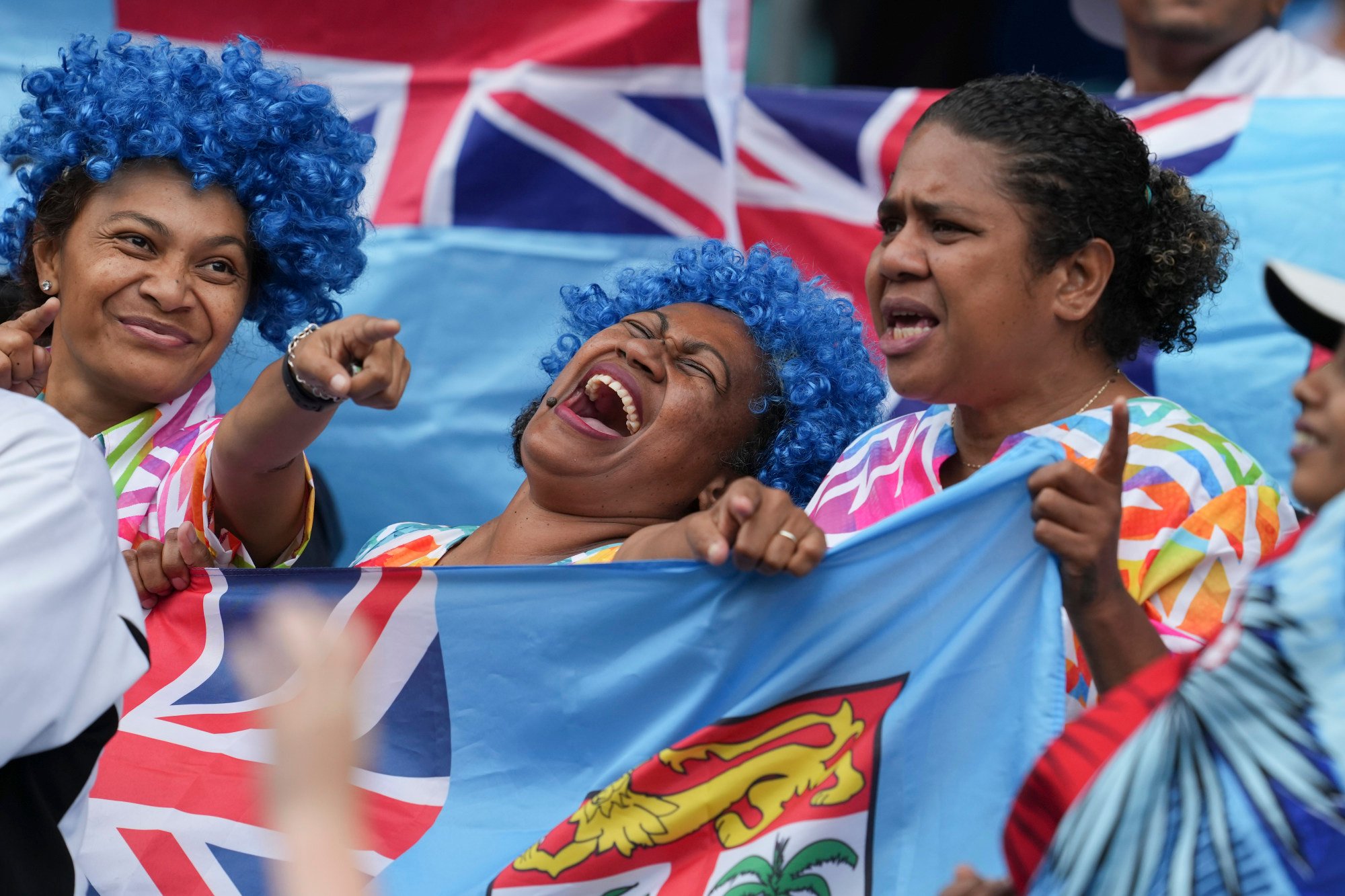
7. More arrivals, but keep local fervour
Flight prices and availability were believed to have stifled interest in the Sevens from overseas – arguably the real barometer of whether “Hong Kong’s back”. Perhaps one of the event’s title sponsors, the city’s flagship airline, could help?
Let’s not, however, go fully back to the pre-Covid days when many Hongkongers couldn’t get tournament tickets because plenty went to tour companies so that stag parties from London could attend.
This year, the stronger local flavour in the stadium benefited the atmosphere, the legacy for those watching and arguably Hong Kong’s sense of self. It may be worth ring-fencing a bigger allocation for Hongkongers than used to be the case, so that it remains Hong Kong’s Sevens.

